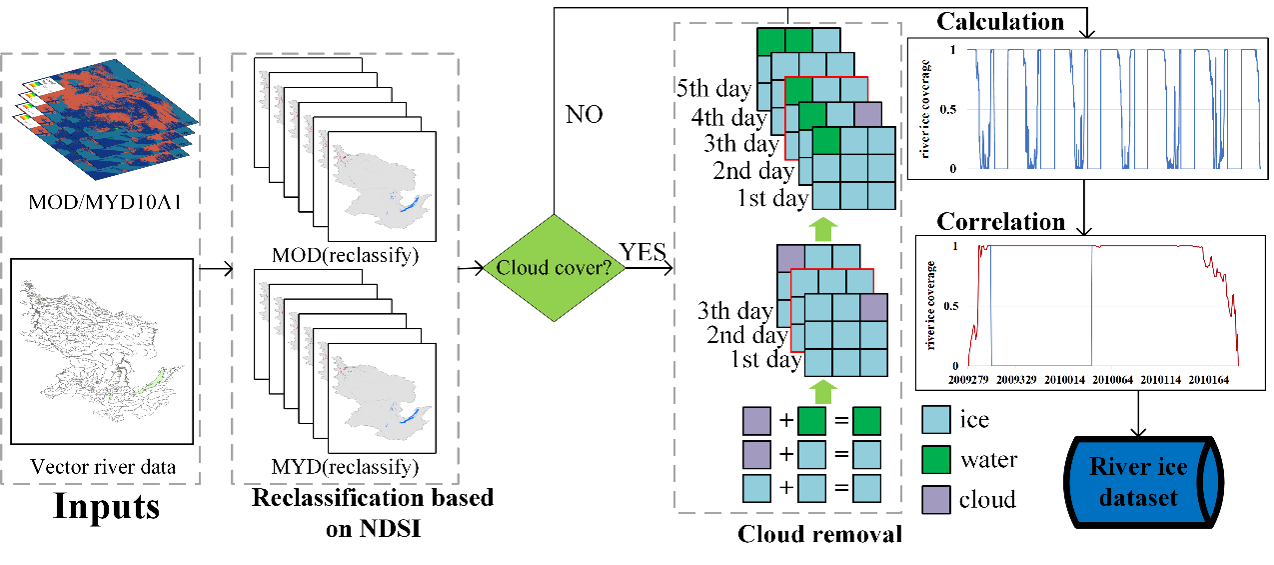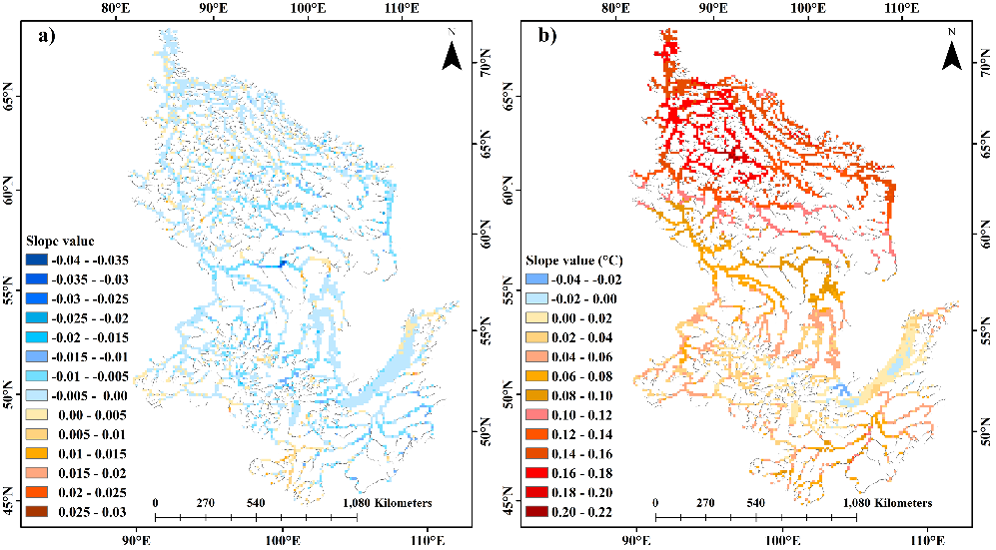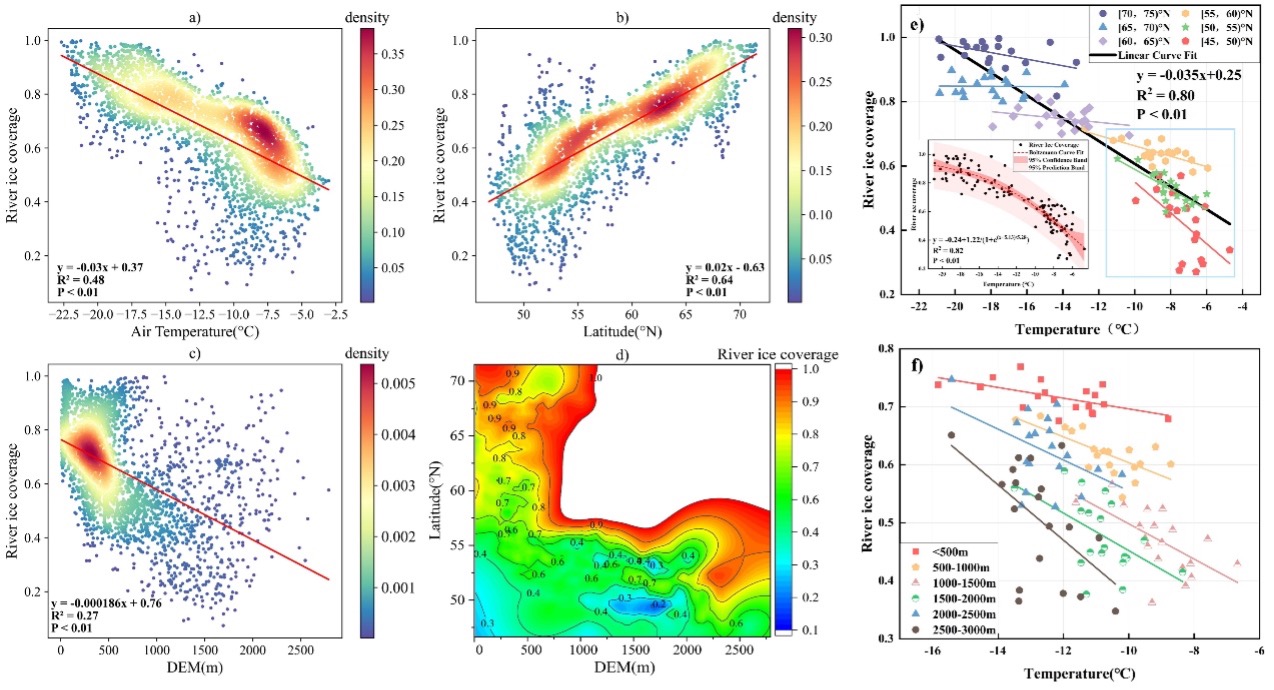Study Reveals Significant Decline in River Ice Coverage on Yenisei River
Jul 27, 2024
A recent study published in the Journal of Hydrology has highlighted the dramatic changes in river ice coverage for the Yenisei River basin over the past two decades. Researchers found that the ice coverage on this major Siberian river has significantly decreased from 2002 to 2021, with the trend closely linked to rising winter air temperatures. This decline has profound implications for the Arctic environment and climate systems.
The study, conducted by a team of scientists led by Prof. QIU Yubao from the Aerospace Information Research Institute (AIR) under the Chinese Academy of Sciences (CAS) in collaboration with scientists in Finland, extracted and analyzed the spatial-temporal variations of river ice coverage based on the Moderate Resolution Imaging Spectroradiometer (MODIS) data. The results showed that 82.8% of the analyzed grid cells experienced a reduction in ice coverage, with 21.9% showing a statistically significant decrease.
The mean winter air temperature could be a critical predictor of river ice coverage. The researchers found that temperature variations accounted for nearly half of the observed changes in ice coverage. Notably, the sensitivity of river ice to temperature was more pronounced in the southern regions of the Yenisei River basin.
The study revealed a latitudinal gradient in the spatial distribution of winter river ice coverage, with higher sensitivity to temperature changes in the southern parts of the basin. This gradient underscores the complex interactions between climate factors and river ice dynamics in the Arctic.
The study also revealed the impact of the Boguchany dam on river ice coverage downstream. It was found that the construction of the dam on the Angara River led to a significant reduction in winter ice coverage in downstream areas.
The Yenisei River, one of the largest rivers draining into the Arctic Ocean, plays a crucial role in the region's hydrology and ecology. The reduction in ice coverage has several significant impacts on ecosystem. River ice influences various physical and chemical conditions, including light availability, temperature, and nutrient distribution, which in turn affect the river ecosystem. A decrease in ice cover could lead to changes in these environmental parameters, potentially disrupting local ecosystems.
River ice is also a key component in the global carbon dioxide cycle. Despite being frozen in winter, rivers like the Yenisei contribute to significant methane emissions. Changes in ice cover could alter the timing and amount of greenhouse gas releases, influencing global climate patterns.
The findings of this study add to the growing body of evidence that Arctic regions are experiencing warming at a rate much faster than the global average. The feedback mechanisms associated with declining river ice, such as increased heat absorption by open water, could further accelerate regional and global climate change.
This comprehensive study on the Yenisei River's ice coverage provides valuable insights into the impacts of climate change on Arctic river systems. By highlighting the link between rising temperatures and declining ice cover, the research underscores the urgent need for continued monitoring and analysis to understand and mitigate the broader implications of these changes on the Arctic environment and beyond.
The complete dataset of the study is openly accessible at the ScienceDB.

Flowchart illustrating the method for extracting river ice coverage. (Image by AIR)

Spatial-temporal variations of river ice coverage (a) and air temperature (b) in the Yenisei River basin. (Image by AIR)

Driver analysis of variations in river ice coverage in the Yenisei River basin. (Image by AIR)
Contact: luyq@aircas.ac.cn



News & Events